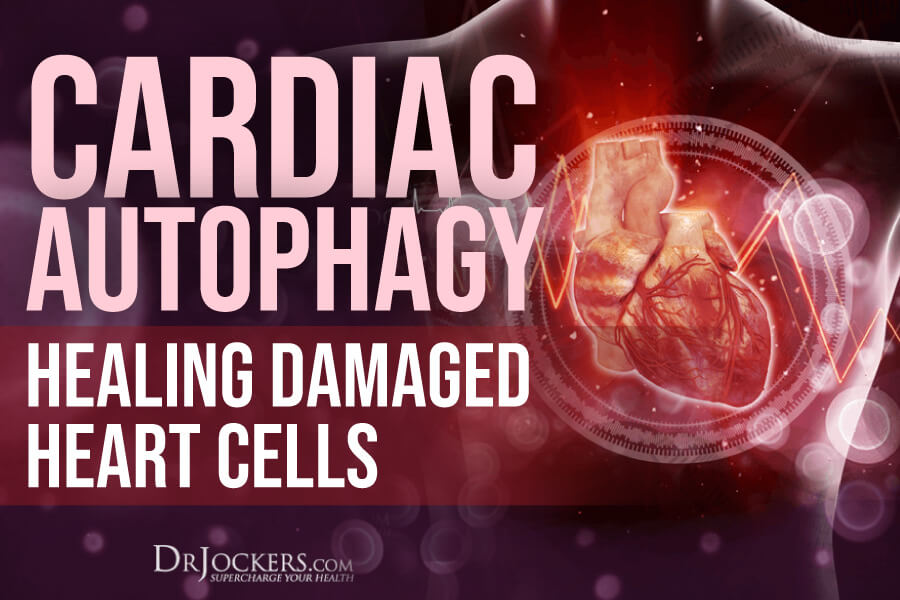 Cardiac Autophagy: Healing Damaged Heart Cells
Cardiac Autophagy: Healing Damaged Heart Cells
Did you know that every 36 seconds someone dies from cardiovascular disease (1)? You don’t want to be one of them. Your heart is a very important organ that is working all the time, beating every second of your life to keep you healthy and alive.
Your heart can’t stay healthy without help, though. It needs your support to function optimally and support your health. This is where cardiac autophagy comes in: a way to repair your damaged heart health and support your overall health.
In this article, I will discuss the importance of cardiac health. You will understand how cardiac cells may become damaged. You will learn about what cardiac autophagy is and the importance of creating resilient cardiac mitochondria. I will share my top strategies to promote cardiac autophagy to support your health and well-being.
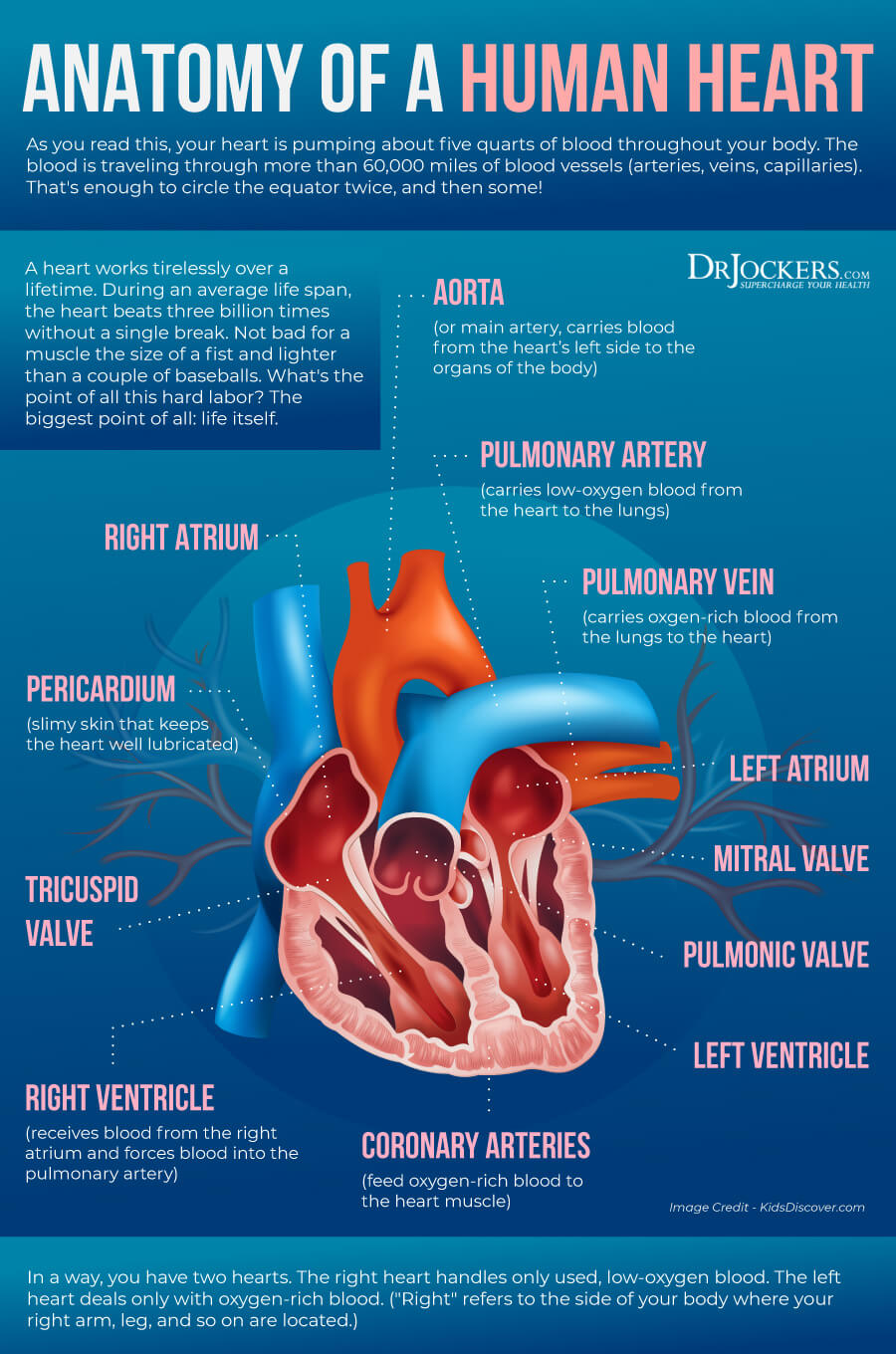
The Importance of Cardiac Health
Cardiac health refers to your cardiovascular or heart health. Your heart is one of your most important organs and the center of your circulatory system. As the National Institute of Health (NIH), National Lung, Blood, and Heart Institute explains, your circulatory system is made up of a network of blood vessels, such as capillaries, veins, and arteries that carry blood full of oxygen and nutrients to your organs, allowing healthy functioning.
Your heart is working non-stop. It is beating all day long, every minute of the day to make sure that the right amount of blood is flowing through your system at a healthy rate to keep your body’s systems healthy and functioning (2).
Your cardiac health is clearly important. If there is a problem, your heart will have a harder time pumping blood. If your heart experiences difficulties pumping blood, it can affect your entire body. Fat, cholesterol, calcium, and other substances can create plaques in your coronary arteries, restricting blood flow and increasing the risk of heart attacks, strokes, and cardiac death.
According to the Centers for Disease Control and Prevention (CDC), heart disease is the leading cause of death in the United States, killing one person every 36 seconds and 655,000 people a year. It is responsible for one in every four deaths in the country (1). It is clear that your cardiac health is important and non-negotiable if you want to live a healthy and long life.
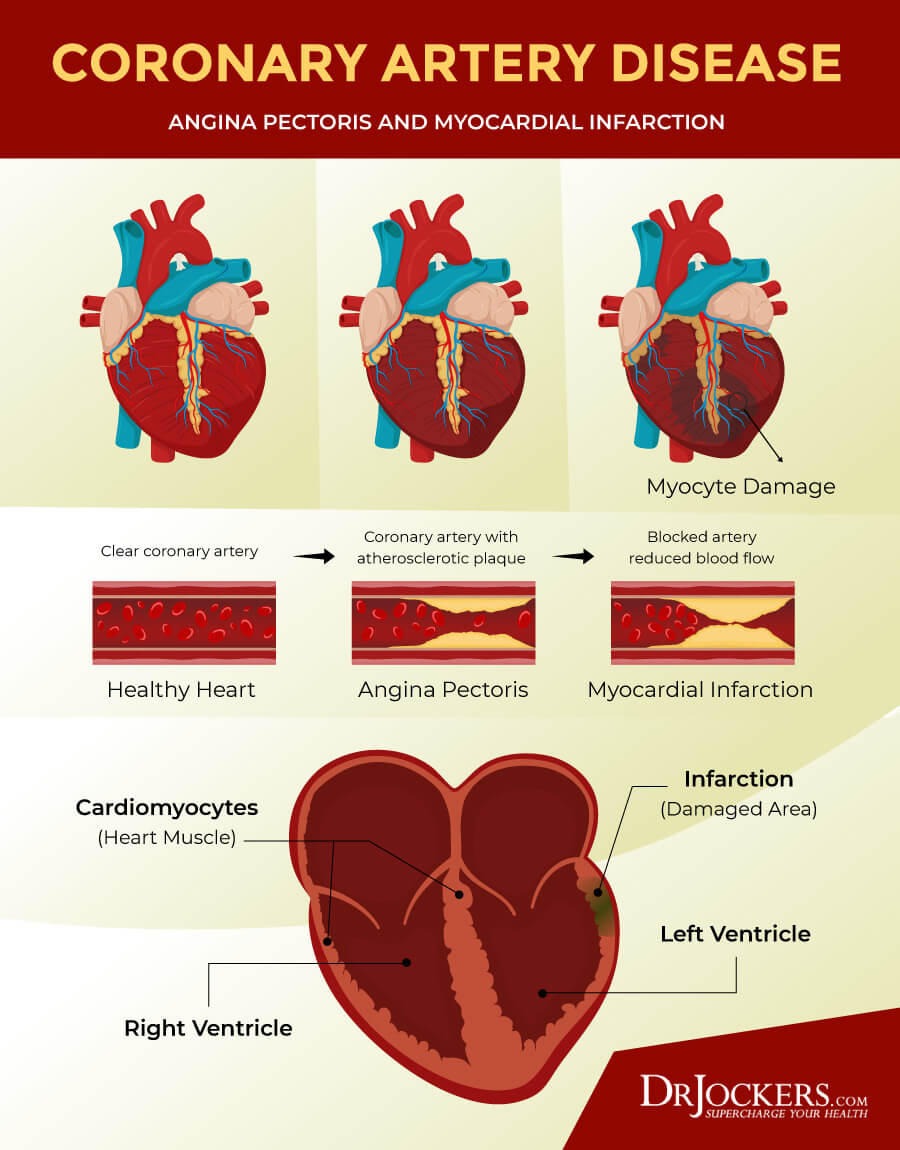
How Cardiac Cells Become Damaged
Damage to your cardiac or heart cells and the heart and circulatory system poses a major health risk and is a major cause of death and disability in our country. Cardiomyocytes are your cardiac or heart muscle cells that make up your cardiac muscle.
Damage to your cardiac cells may happen because of hypertension or high blood pressure, coronary artery disease, which leads to chronic blood supply inefficiency, or a heart attack, which is a sudden closing of a blood vessel that takes oxygen to the heart.
There are a variety of dietary, lifestyle, health, and environmental factors that may increase the risk of cardiac cell damage and cardiac health problems, including obesity, mitochondrial dysfunction, high levels of oxidative stress, chronic inflammation, insulin resistance, diabetes, unhealthy diet, sedentary lifestyle, smoking, family history of heart disease, and drinking too much alcohol (3, 4).
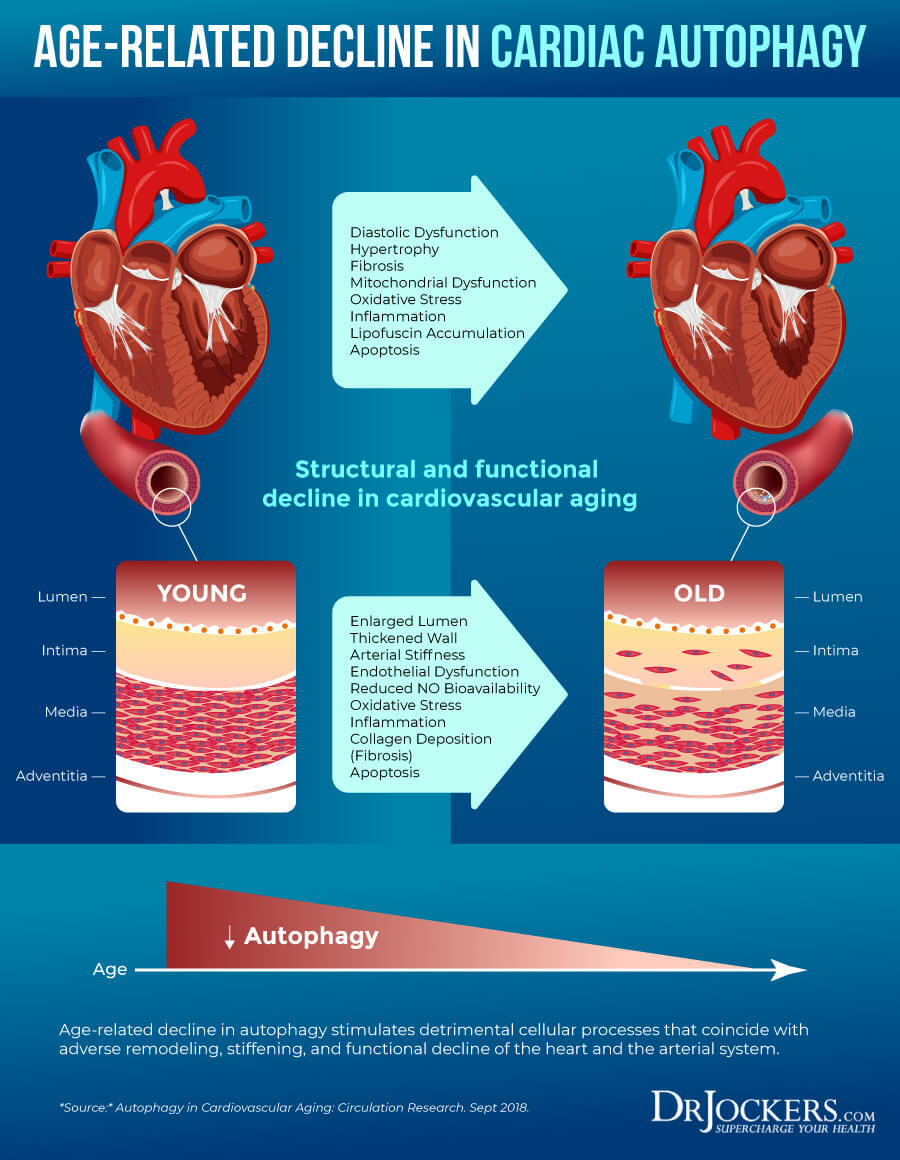
What is Cardiac Autophagy
To learn how to protect your cardiac cells, you need to understand cardiac autophagy first. The word autophagy comes from ‘auto-phlegein’, a Greek word for ‘self-eating’. Autophagy, or self-eating, refers to the process of cellular recycling in your body. During this process, a cell itself metabolizes various components to reuse them and create new and healthy cellular structures.
Your cells, including your cardiac cells, have a number of important components called organelles that act like organs in your body. When your body is exposed to stressors, such as nutrient deprivation, your cells make a phagophore, which is a double-membrane structure.
This is a very flexible structure that is able to surround cellular components and take them to the lysosomes, which are unique organelles that can destroy particular components by releasing degrading enzymes.
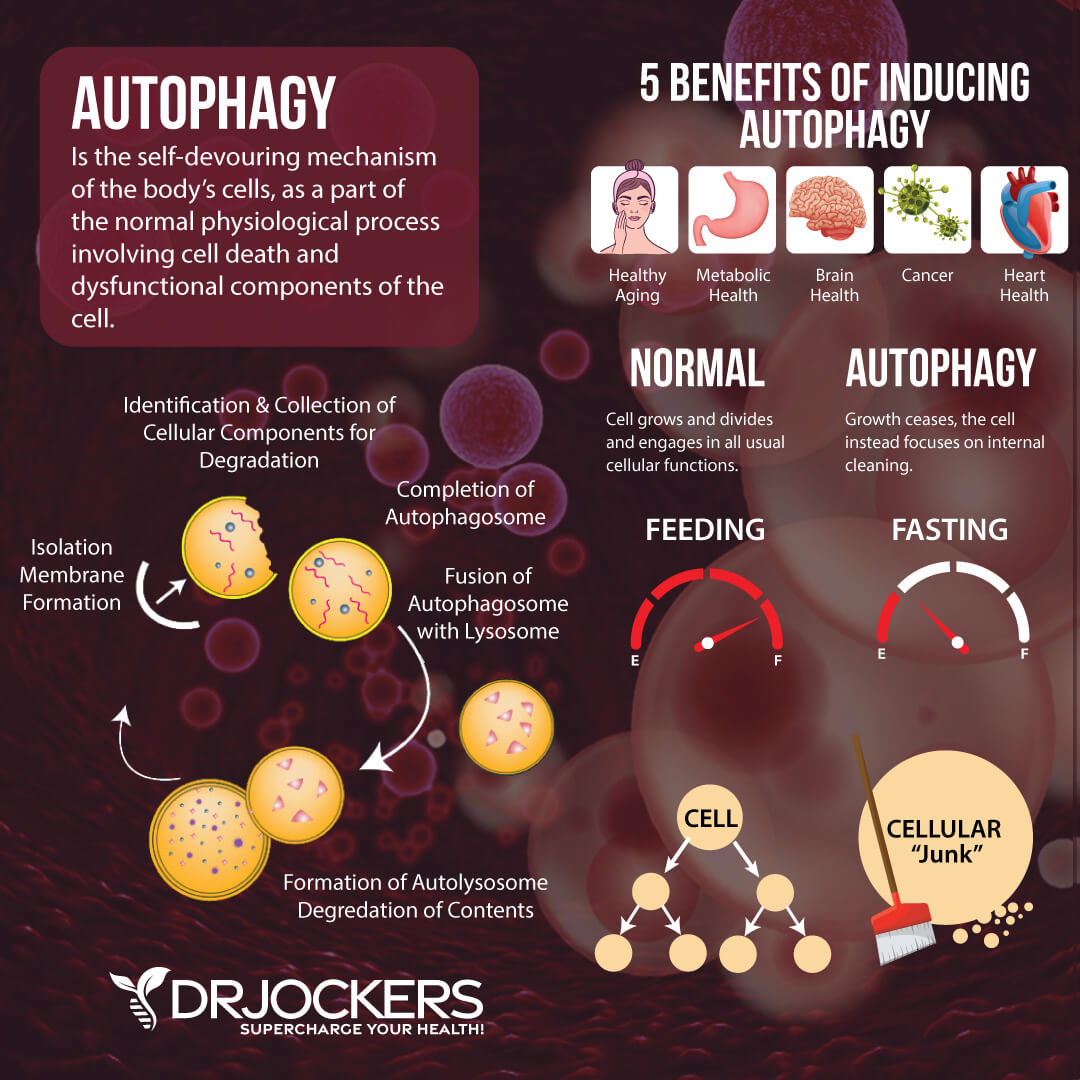
Cardiac Autophagy Homeostasis
Your body’s goal is always homeostasis and balance, which is necessary for health. One of the major driving forces of autophagy is cellular stress. Nutrient deprivation from fasting, glucose deprivation from a low-carb diet, and exercise are great examples of this autophagy-driving stress.
When such stress happens, your body prepares for survival. To survive, it needs healthy cells. So it proceeds to break down damaged and old cells and cellular organelles to allow room for the creation of new and healthy cells for better energy efficiency, survival, and health.
Autophagy is very important for your overall health, and cardiac autophagy is beneficial for your cardiac health. According to a 2012 scientific review published in Heart Failure Reviews, autophagy plays a beneficial role in heart health, including in the setting of cardioprotection, hypertrophy, and heart failure (5).
According to a 2012 study published in the Journal of Cardiovascular Pharmacology, cardiac autophagy can improve the heart’s tolerance to myocardial ischemia, which happens when the blood flow to your heart is reduced and lowers your heart’s ability to receive enough oxygen (6). A 2018 study in Circulation Research showed that as we age, cardiac autophagy decreases, and this increases the thickening of the extracellular matrix and results in endothelial dysfunction (7).
While we know that cardiac autophagy is very important for the healing process, too much autophagy can be problematic as well. A 2016 study out of The Journal of Molecular and Cellular Cardiology discussed the idea of autophagy homeostasis for optimal cardiovascular health, and you can see the image below to better understand this (8). To learn more about the importance and benefits of autophagy, I recommend reading this article.
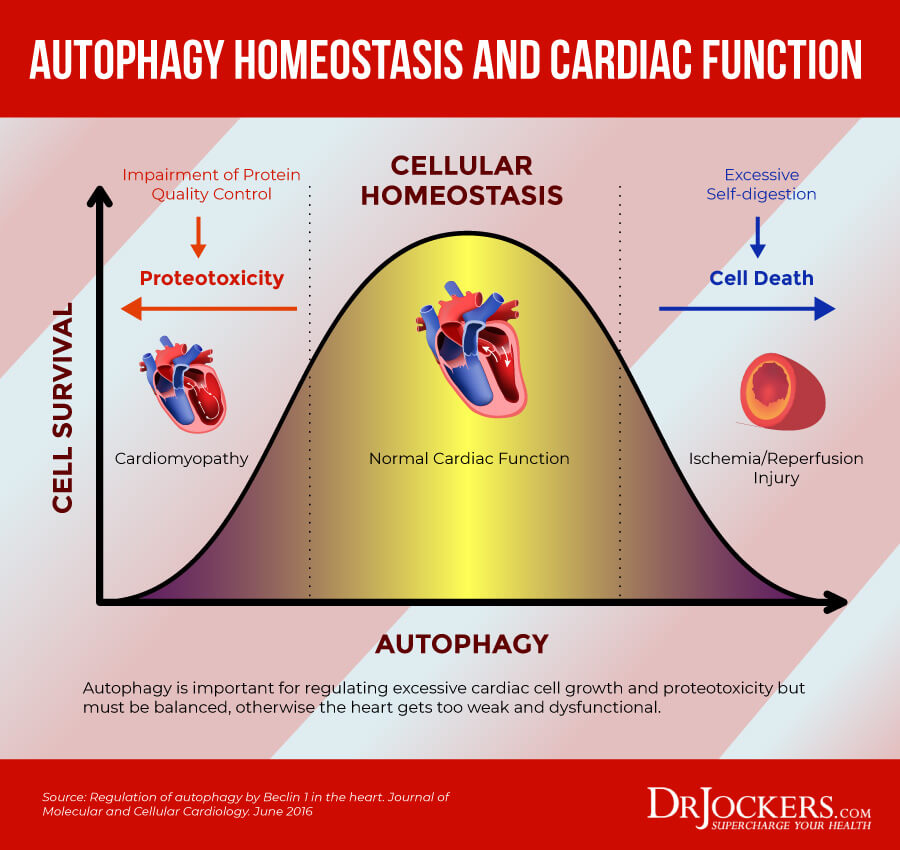
Cardiac Mitophagy
If there is one thing we’ve all learned in biology class, it’s that the mitochondria are the powerhouse of your cells. They are specialized cells that are found in every single cell of your body, except for your red blood cells. Cardiac mitochondria are found in your cardiac cells.
Your mitochondria are responsible for generating about 90 percent of cellular energy in the form of adenosine triphosphate (ATP). They also help metabolic functions. Mitochondria are located at various concentrations in various tissues throughout your body, serving various purposes. Your cardiac mitochondria are responsible for your heart’s health and functioning (9).
Creating Resilient Cardiac Mitochondria
There is a link between the performance and functioning of the mitochondria and the risk of developing a disease. Mitochondria become damaged from metabolically induced oxidative stress. Mitochondrial abnormalities include impaired mitochondrial electron transport chain activity, increased formation of reactive oxygen species, shifted metabolic substrate utilization, aberrant mitochondrial dynamics, and altered ion homeostasis.
Nature Reviews Cardiology has published a series of articles on how important it is to target mitochondrial autophagy, which is called mitophagy, as a means of improving heart and blood vessel tissue function and cardiovascular health (10, 11). In the image below, you can see the cardiac muscle tissue and mitochondria, and the importance of healthy mitophagy processes.
Chronic stress is a major risk factor for health issues and the development of stress-related chronic diseases. Heart disease is one of them. According to the book Stress Resilience published by Academic Press, improving mitochondrial function may be beneficial for improving stress resilience (12). According to a 2016 study published in the Impact Journal on Aging, aerobic exercise can improve cardiac mitochondrial resilience and heart health (13).
There are a variety of other ways that you can improve cardiac mitochondrial resilience. In the next section, you will learn the top strategies to benefit cardiac mitochondrial health. To learn more about how to improve mitochondrial health, I recommend reading this article.
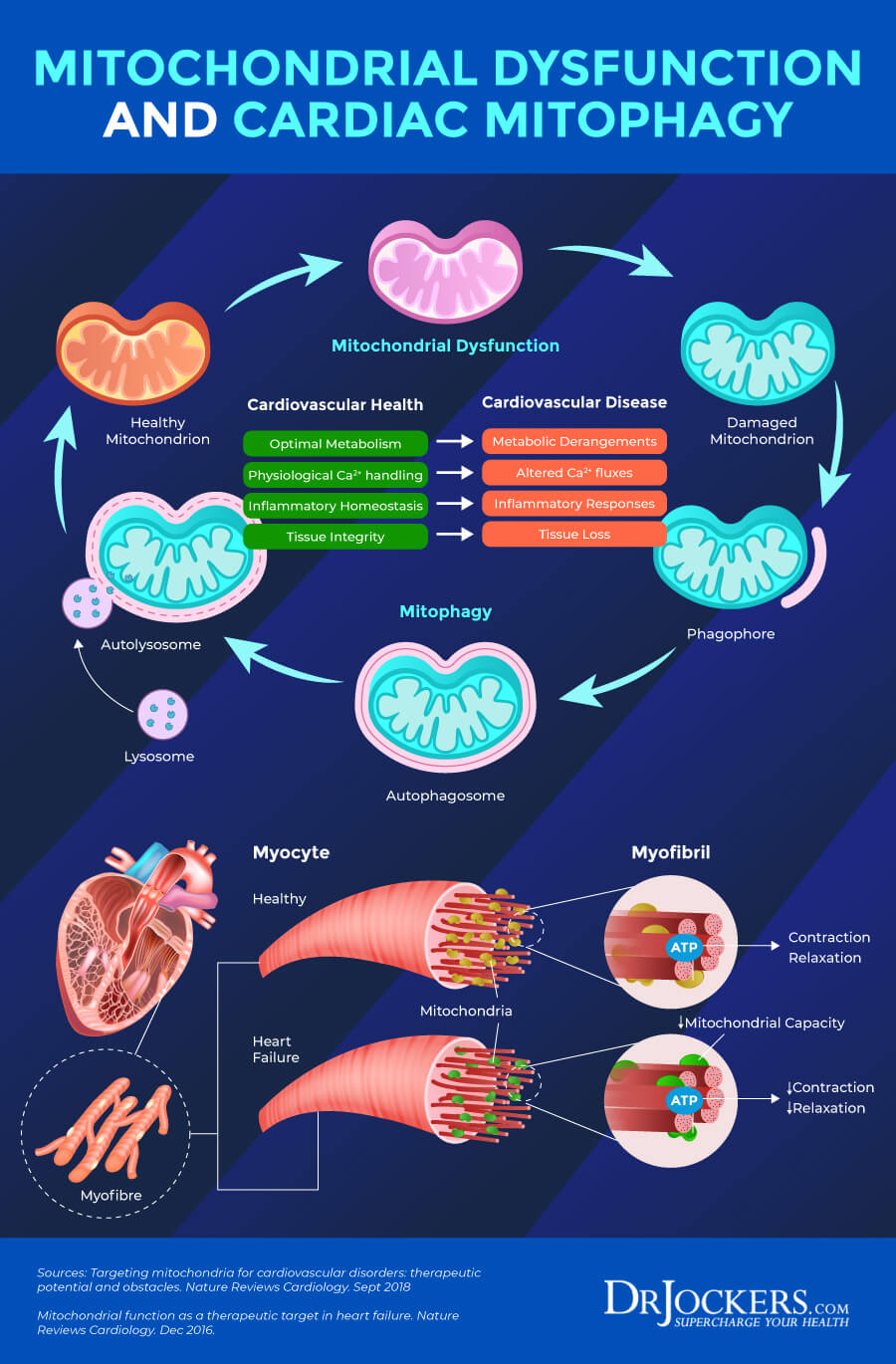
Top Strategies to Promote Cardiac Autophagy
If you want to promote cardiac autophagy for cardiac health, there are a variety of simple strategies you can try. It is important to note that these strategies have not been FDA approved to prevent, mitigate, treat, or cure heart disease or any other disease and should not be confused as such.
However, we do know that these can improve heart health and stimulate cardiac cell autophagy. Here are my top strategies to promote cardiac autophagy:
Consume Nutrient-Dense Foods
Eating an inflammatory, unhealthy diet can seriously compromise your cardiac and overall health. I recommend that you remove all refined sugar, refined oils, processed foods, deep-fried food, junk food, and artificial ingredients from your diet and consume nutrient-dense foods instead.
I recommend eating a nutrient-dense, anti-inflammatory, low-carb ketogenic diet rich in greens, vegetables, low-glycemic index fruits, herbs, spices, fermented foods, healthy fats, such as coconut oil, avocados, and organic butter and ghee, and clean protein, such as grass-fed beef, pasture-raised poultry and eggs, wild-caught fish, and wild game.
According to 2010 research published in Human Molecular Genetics, a ketogenic diet may slow down the progression of mitochondrial myopathy (14). According to a 2014 randomized trial published in the Annals for Internal Medicine, which followed 119 participants for 12 months and aimed to compare the benefits of a low-fat versus a low-carb diet on cardiac found that a low-carb diet leads to greater weight loss and better cardiovascular markers than a low-fat diet (15). To learn more about the diet that I recommend, read this article.
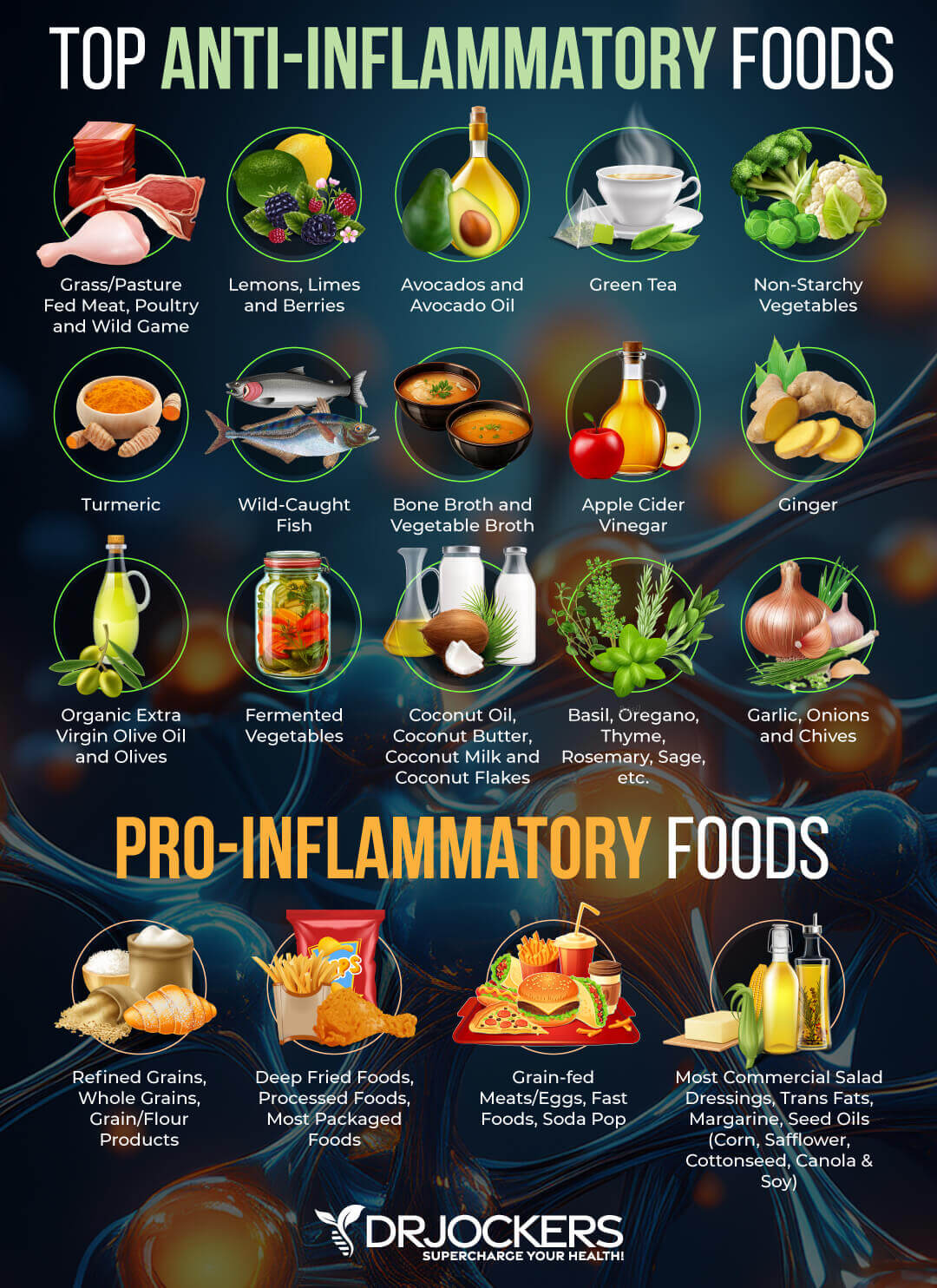
Intermittent Fasting
Intermittent fasting is a form of fasting that cycles between a period of not eating (fasting) and a period of eating (feasting) within a day. As I explained in detail in this article, intermittent fasting has a number of health benefits, including increased autophagy, improved genetic repair, improved insulin sensitivity, improved immune regulation, and a lower risk of disease. It is also great for your cardiac health.
According to a 2019 review published in the Journal of American Heart Association, intermittent fasting may help to reverse advanced cardiomyopathy. The paper discussed that intermittent fasting has cell protective benefits.
It can reduce high blood pressure, aging‐induced cardiac hypertrophy, and other cardiovascular conditions, benefit insulin resistance, and may benefit cardiomyopathy (16). To learn more about how intermittent fasting may benefit your heart health, I recommend reading this article.
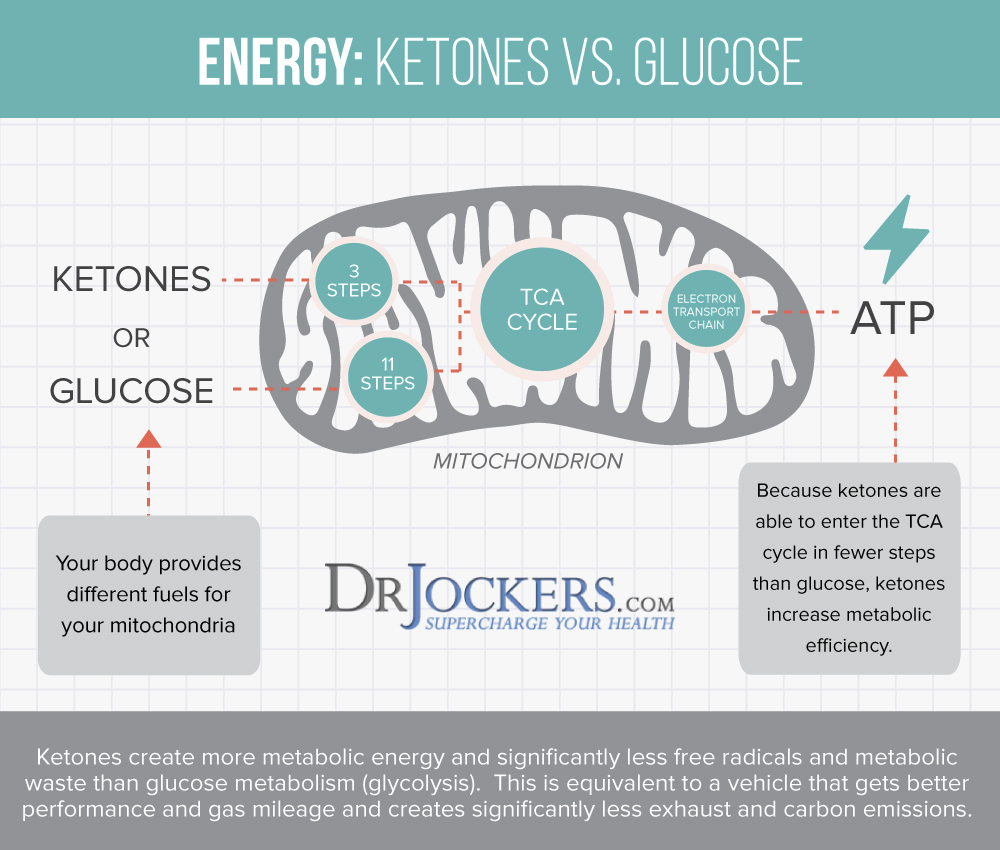
Extended Fasting
It is not only intermittent fasting but also extended fasting that may benefit your cardiac health. According to a 2014 interview with Dr. Alan Goldhamer published in Integrative Medicine: a Clinician’s Journal, water fasting can benefit all kinds of health conditions, including cardiovascular health, diabetes, and autoimmune conditions (17).
Extended fasting can last for a couple of days or weeks. During your extended fast, you will only be consuming water, and in some cases, other non-calorie liquids, such as herbal tea. It is important that you practice intermittent fasting for a while and make sure that you do well on more advanced forms of intermittent fasting before you embark on an extended fast. To learn more about extended fasting or water fasting and how to prepare for it, I recommend reading this article.
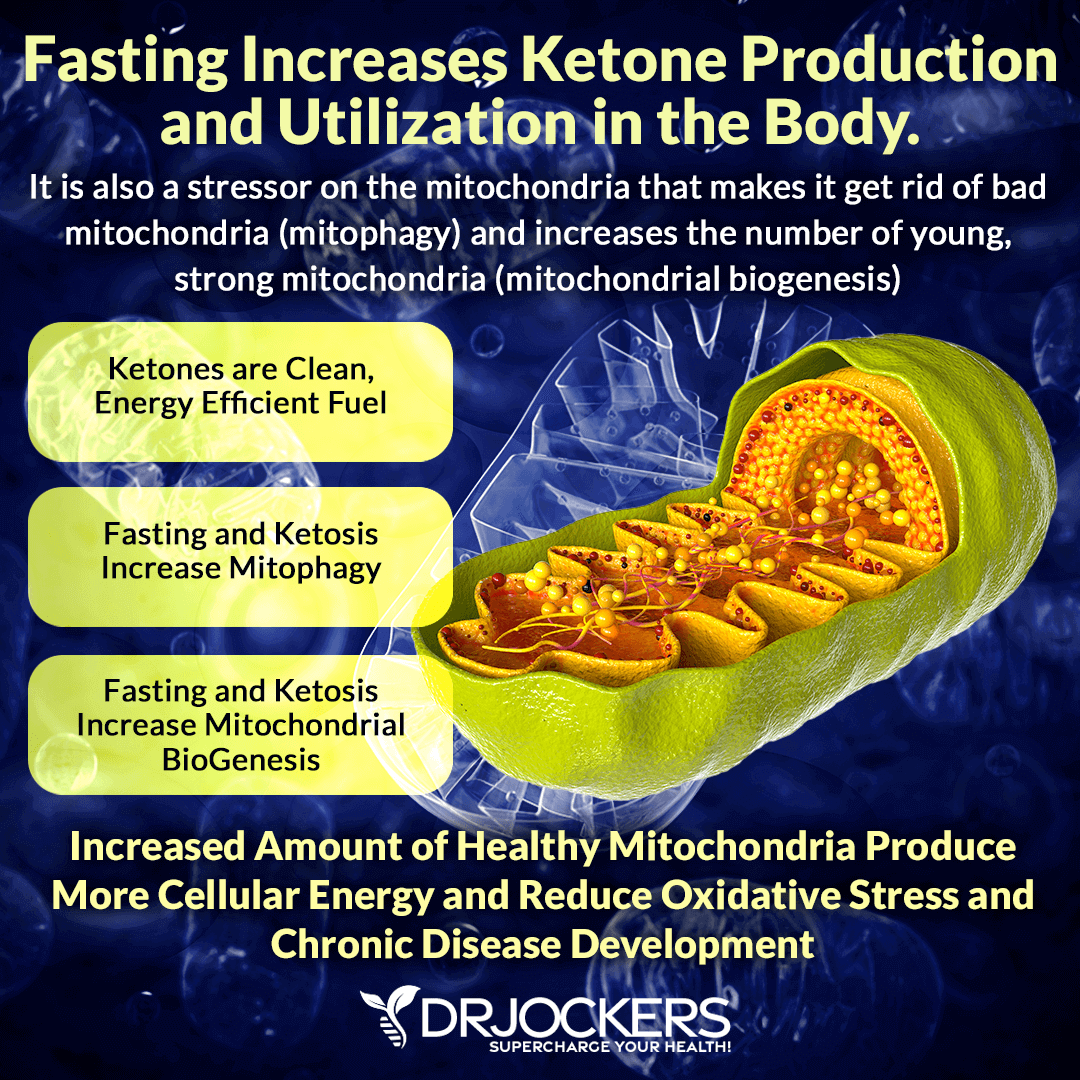
Keep Stress Under Control
Chronic stress is a major contributing factor to inflammation, pain, and disease. According to a 2008 study published in the Journal of American College of Cardiology, psychological stressors, including job loss, the difficulties of caregiving, and marital unhappiness put major stress on cardiac health and can contribute to heart health issues, and may even trigger serious cardiac issues and events including myocardial ischemia, myocardial infarction, wall motion abnormalities, and death (18).
Keeping your stress levels under control is clearly important for your cardiac health. Reduce events, activities, and situations that stress you out. Learn better coping mechanisms to deal with stress.
Practice breathwork, gratitude, mindfulness, meditation, journaling, yoga, grounding, and laughter to lower your stress levels. Spend time with uplifting and supportive people. Spend time in nature. Have some regular me-time and practice a positive mindset.
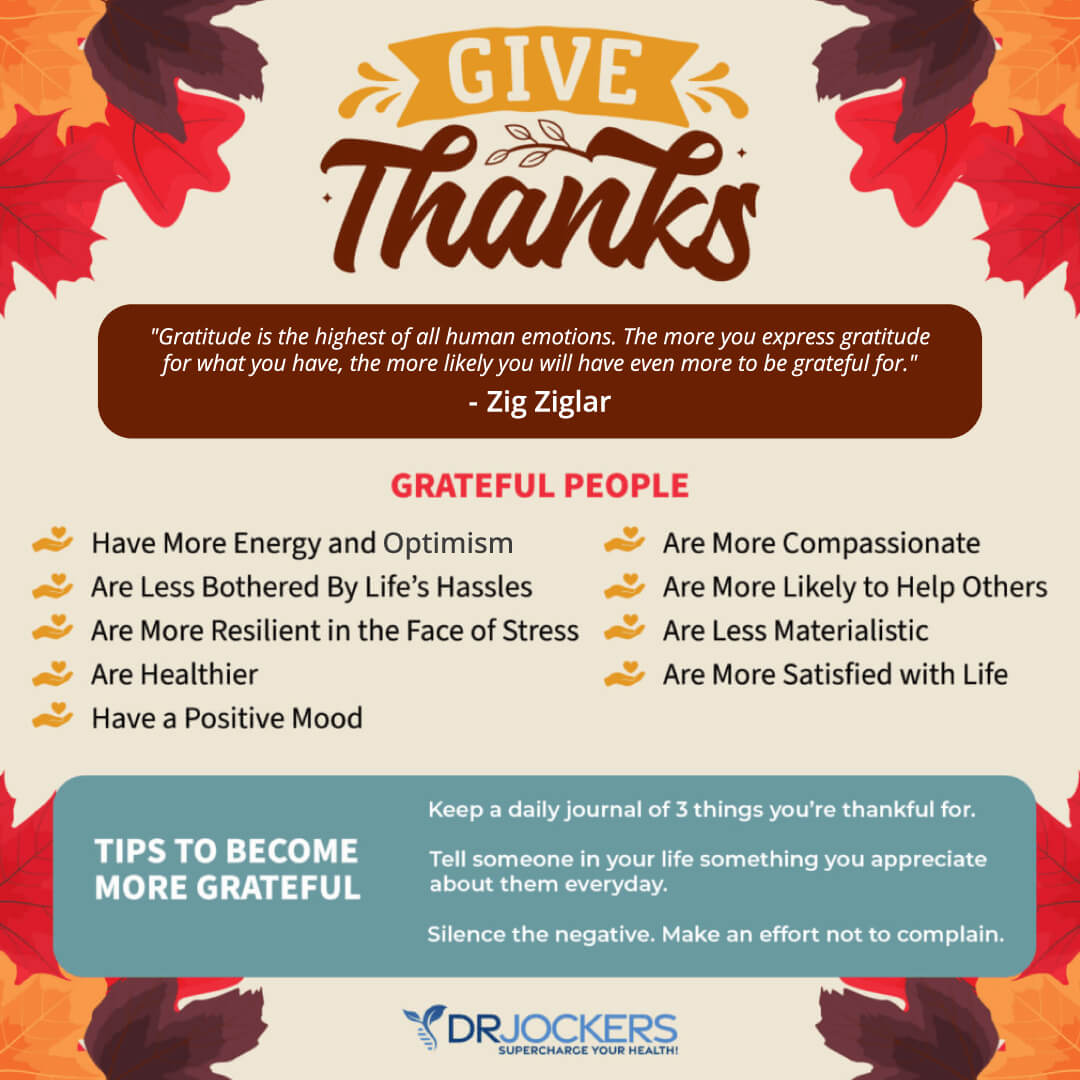
Prioritize Restorative Sleep
Getting regular restorative sleep is critical for your cardiac and overall health. Poor or not enough sleep can contribute to stress, increase inflammation, and increase the risk of disease. According to a 2020 study in the Journal of the American College of Cardiology, irregular sleep can increase your risk of cardiac issues (19).
Make sure to get 7 to 9 hours of restorative sleep each night. Support your natural circadian rhythms by going to bed and waking up around the same time. Make sure that your bed and bedding are comfortable and that your bedroom is a peaceful sanctuary. Avoid food, caffeine, stress, and electronics several hours before bed.
Develop a nighttime routine and engage in relaxing activities that wind you down. Sipping on herbal tea, stretching, reading, meditation, breathwork, prayer, and journaling are great ideas for the evening.

Regular Movement & Exercise
Regular movement and exercise are important for your health and well-being, including your cardiac health. According to a 2018 study in Frontiers in Cardiovascular Medicine, regular exercise is associated with lower blood pressure, higher insulin sensitivity, lower risk of cardiovascular health issues, and lower risk of cardiac death (20).
Moving your body regularly is important. Start your day with light stretching, yoga, or a short walk. Take a stroll at lunch. Stretch regularly throughout the day. Do some light movement in the evening, such as stretching, dancing, yoga, or walking.
Take the stairs, park far from the grocery store and walk to the door, walk or bike instead of driving short distances, garden, dance to your favorite song, walk your dog, or play with your kids to add other simple movements to your day. Exercise at least two days a week and up to five days a week for 20 to 30 minutes each day.
Cardio workouts, such as biking, dancing, trampolining, aerobics classes, jogging, or swimming, are important for your heart health. However, make sure to add strength and resistance training, such as weightlifting, kettlebell workouts, or bodyweight training, and low-impact exercises, such as yoga, Pilates, or Barre workouts, to the mix.
High-intensity interval training (HIIT) and Tabata workouts are a great way to get your cardio, strength workout, and resistance training within a short session. If you are new to working out, try different forms of exercise until you find the combination that you love and works for you.
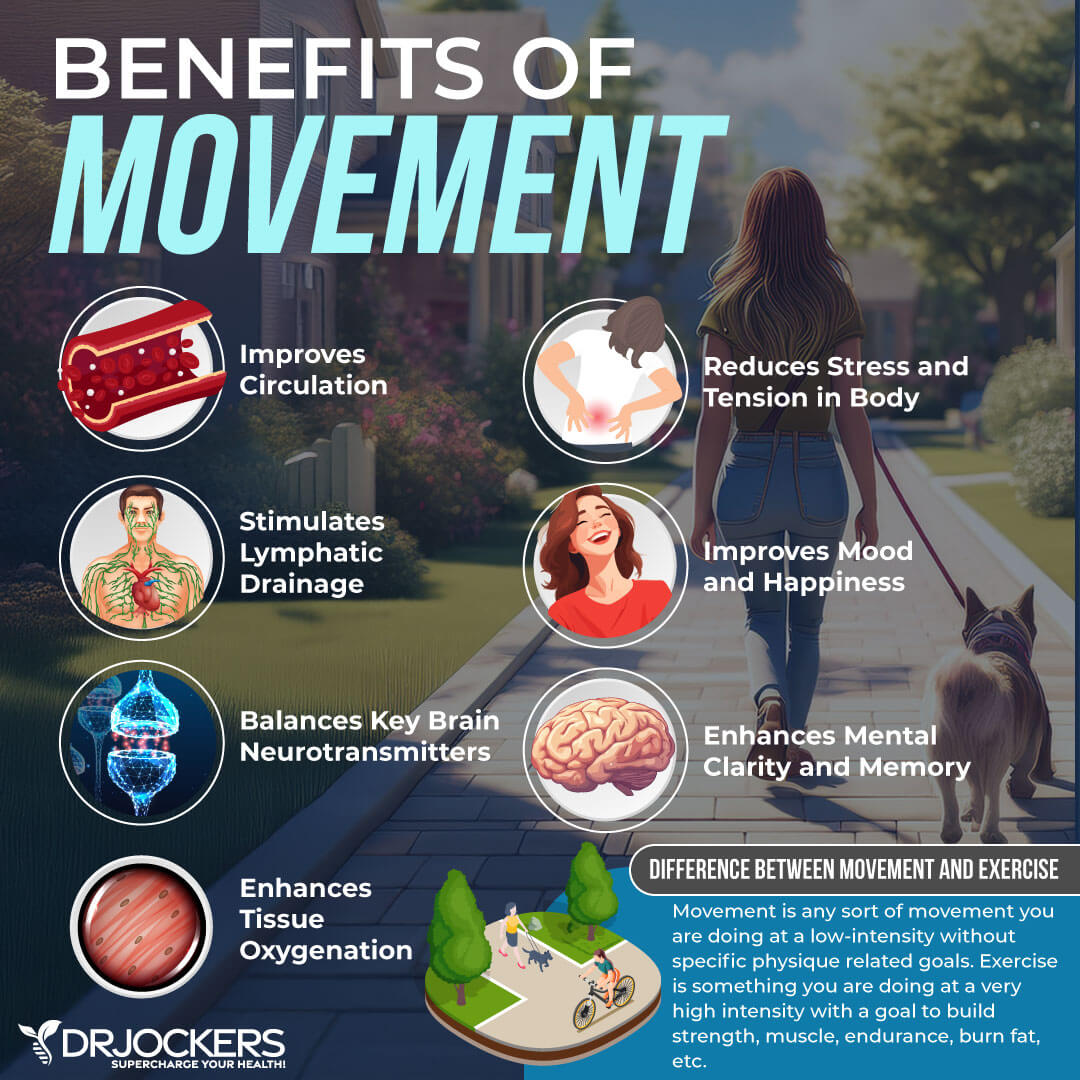
Use Heat Therapy
Heat therapy is a great way to activate cardiac autophagy. According to a 2018 study published in the Journal of Molecular Sciences, heat shock is great for autophagy (21). Experiencing heat for a short period of time can activate autophagy by putting major stressors on your body through extreme temperature changes. Your body will want to return to homeostasis quickly, which can support autophagy and improve your health.
To experience the benefits of heat therapy, I recommend using an infrared sauna regularly. I recommend and personally love the High Tech Health Sauna for infrared sauna therapy because it uses non-toxic poplar wood, is low EMF, has the highest-level certifications, and works wonderfully!
For a portable, lower-cost option, I really like the HigherDOSE Infrared Sauna Blanket here. This is also low EMF and is designed by expert Sauna maker Dr Raleigh Duncan. Your head stays out of this, which most people find really comfortable, and their heat tolerance increases, so they are able to stay in longer and get more benefits from the sauna therapy. Use the coupon code DRJOCKERS to save 15% off on HigherDOSE products, including the Sauna Blanket.
I personally try to do infrared sauna therapy at least 3 times per week for roughly 15-30 minutes per session, which is a clinically effective dose to help enhance healing. To learn more about infrared sauna therapy, I recommend reading this article.
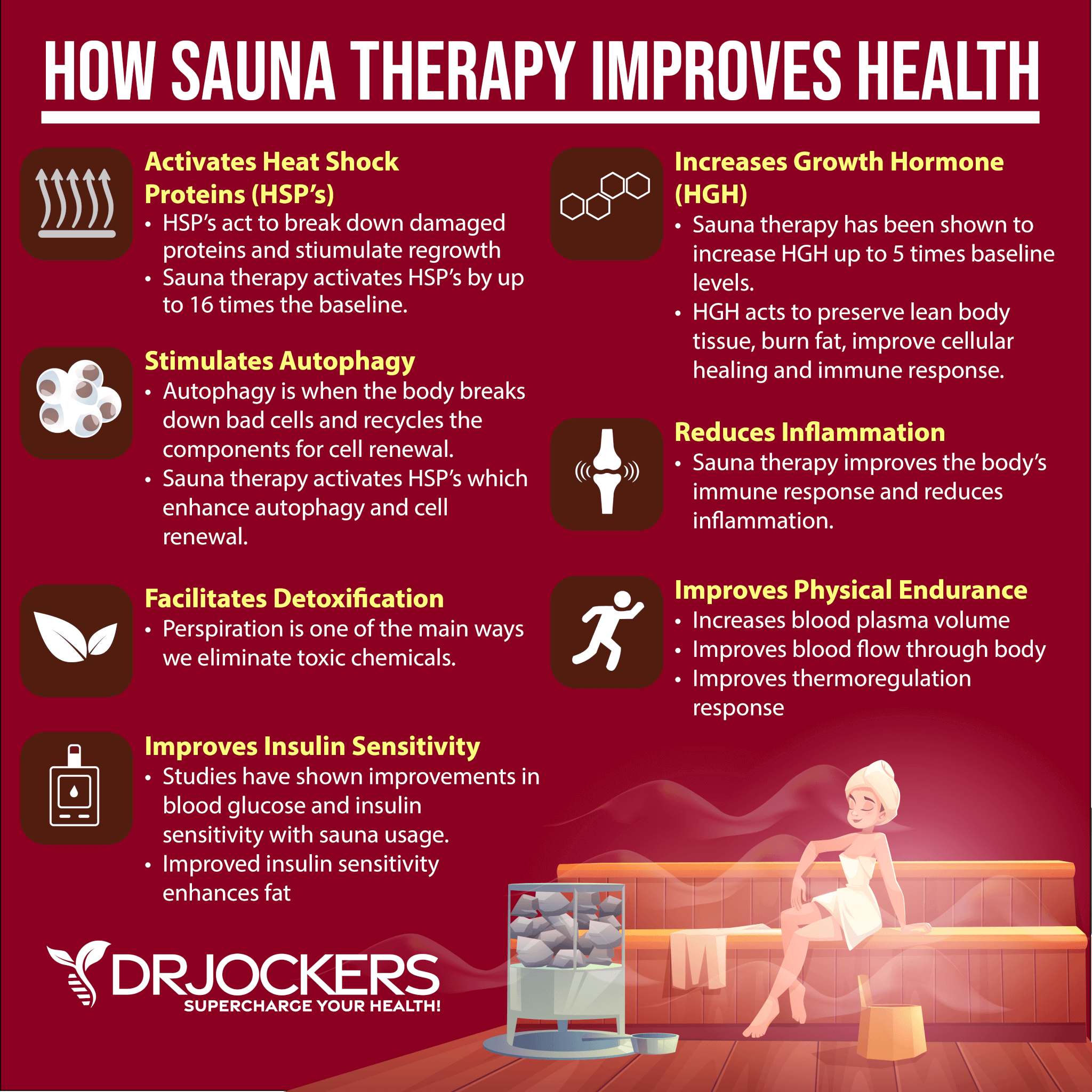
Use Cold Therapy
Just like heat therapy, cold therapy is also great for cardiac autophagy. According to a 2017 study published in Neural Regeneration Research, cold exposure induces autophagy (22). Experiencing cold for a short period of time can activate autophagy by putting unexpected stressors on your body through extreme temperature changes. Your body will want to return to balance homeostasis, which supports autophagy.
To experience the benefits of cold therapy, I recommend taking cold showers or finishing your shower with cold water. You may take ice baths or jump into a cold pool. I also recommend cryotherapy.
Using the combination of hot and cold therapy by jumping into the cold pool or taking a cold shower after an infrared sauna session or alternating between hot and cold water when taking a shower, is the best way to get the benefits of both worlds.
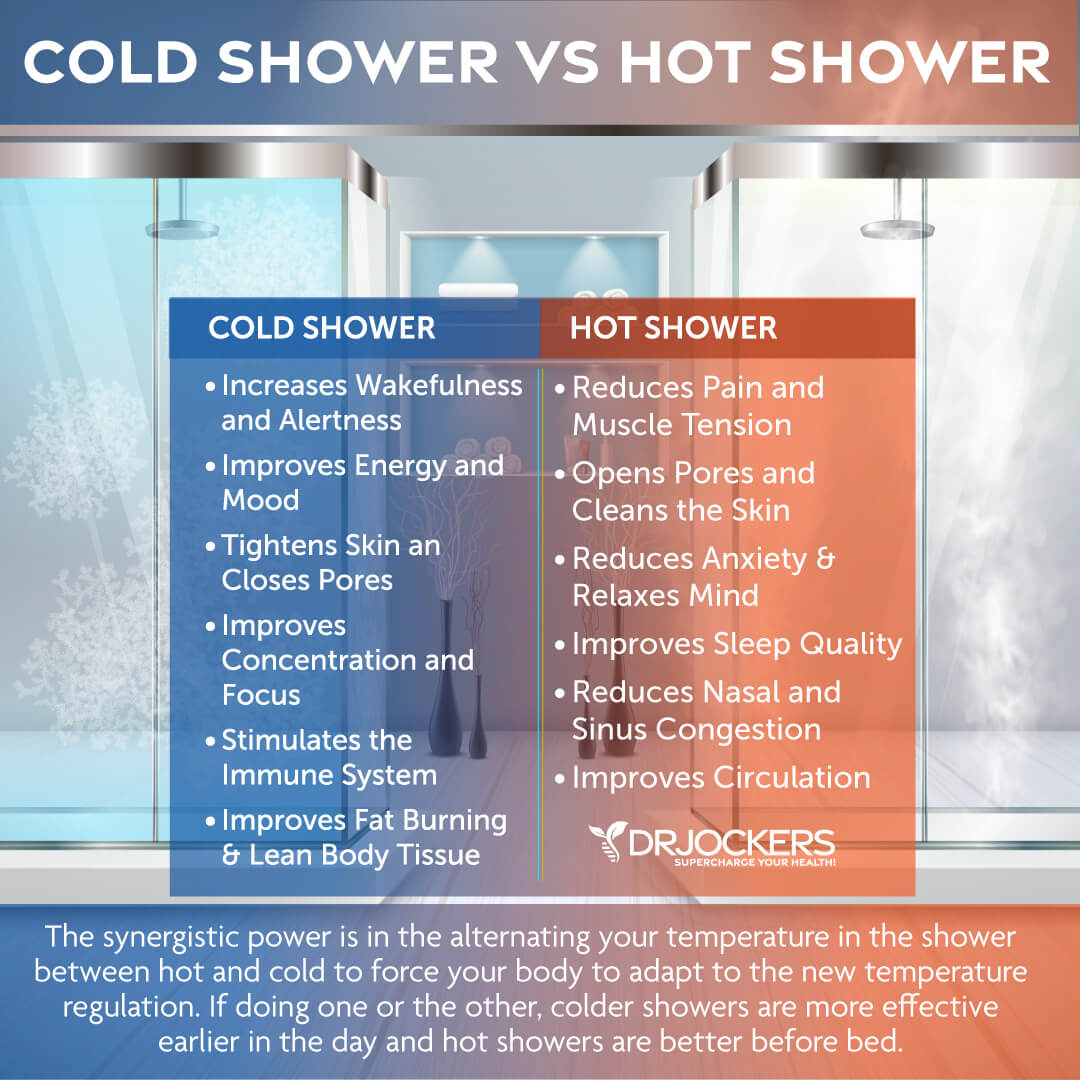
Use Autophagy-Enhancing Herbs
To further support cardiac autophagy and cardiac resistance, you can try taking some autophagy-enhancing herbs. Resveratrol is a polyphenol found in the skin of red grapes, peanuts, and berries. According to a 2019 study in the International Journal of Molecular Sciences, resveratrol may help to reduce cardiovascular disease and heart failure (23).
Quercetin is a flavonol with similar and complementary benefits to resveratrol. According to a 2013 study published in the International Journal of Preventive Medicine, quercetin may improve cardiovascular biomarkers in those with diabetes (24).
Curcumin is the potent compound found in the spice turmeric. According to a 2009 study published in the International Journal of Cardiology, curcumin has anti-inflammatory and cardioprotective benefits (25). Epigallocatechin gallate (EGCG), a powerful polyphenol found in green tea, offers important health benefits. According to a 2007 study in the Journal of American College of Nutrition, regular consumption of green tea and EGCG has shown cardiovascular and metabolic health benefits (26).
I recommend taking Resveratrol Power, a fantastic supplement powered by resveratrol and quercetin, daily to support autophagy and cardiac resistance. Resveratrol Power helps to improve mitochondrial function, improve circulation, support optimal immune function, reduce oxidative stress, and support skin function. Take one capsule once a day for optimal results.
Final Thoughts
Cardiovascular disease is the leading cause of death in the United States. It doesn’t have to be this way and you certainly don’t have to become part of the statistics. You can support your heart health naturally through a healthy diet and lifestyle and some simple strategies. Follow my tips to improve cardiac resilience, support your health, and live a long heart-healthy life.
If you want to work with a functional health coach, I recommend this article with tips on how to find a great coach. On our website, we offer long-distance functional health coaching programs. For further support with your health goals, just reach out—our fantastic coaches are here to support your journey.
Inflammation Crushing Ebundle
The Inflammation Crushing Ebundle is designed to help you improve your brain, liver, immune system and discover the healing strategies, foods and recipes to burn fat, reduce inflammation and Thrive in Life!
As a doctor of natural medicine, I have spent the past 20 years studying the best healing strategies and worked with hundreds of coaching clients, helping them overcome chronic health conditions and optimize their overall health.
In our Inflammation Crushing Ebundle, I have put together my very best strategies to reduce inflammation and optimize your healing potential. Take a look at what you will get inside these valuable guides below!
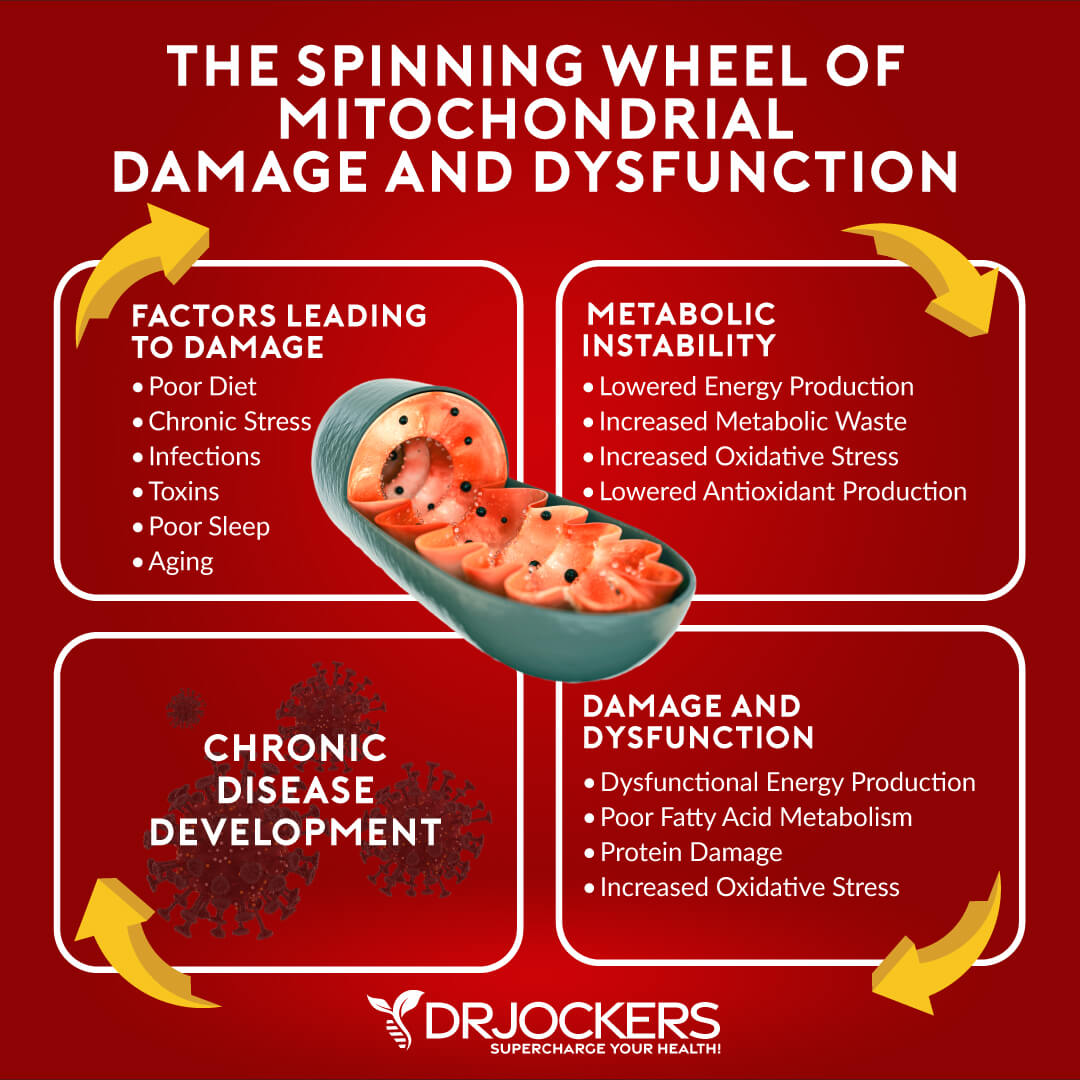





I don’t like saunas but I do love a long hot bath. I can taste salt as it runs down my face so I am thinking that I am experiencing the same health benefits that come with using a sauna. Is this correct?
Hello Michelle – although the hot bath can be good, it is not the same detox effect as infrared sauna therapy.
I would like to get off blood thinners, and bloodpressure pills. I Had a transit stroke about 2yrs ago.
What about magnesium, potassium, vitamin E, and vitamin C?
Yes these can all be important!
I had my first heart attack at the age of 52, relatively mild, treated with angioplasty, a stent and a few medications. Four years later I had my second heart attack, treated the same way. Three years after that, 11 years ago at the age of 61, I had my third. I guess they were trying to do the same “treatment” with angioplasty and another stent but apparently I “died three times” on the the operating table during what turned into open heart surgery, probably due to complications arising from the first two stents, although they never admitted that. Following my cardiologist’s advice I was strictly eating what I was told was a “heart healthy” diet, which I learned a few years ago from following a few web sites like this one was actually a heart healthy diet turned on its head, e.g. no eggs or healthy saturated like butter from grass fed cows, and lots of pro-inflammatory “vegetable oils” like soy and canola. And of course by then I was taking 5 prescription meds including statins plus aspirin.
Had I continued on the path that was prescribed by what I now call the “medical-industrial establishment,” I probably would be dead my now or at best pretty much incapacitated. At least I had the good sense to do my own research on the internet and within a year after my last heart attack I had stopped taking all of the toxins they called “medications” and had told me I would have to take for the rest of my life; and I switched to a truly heart healthy diet and lifestyle like what Dr. Jockers recommends. That didn’t completely solve the problem, but at least it gave me a few more years of heart attack free not-quite-so-bad health while I continued to learn more.
Fortunately my long time conventional ADA-trained dentist (now my ex-dentist) told me I needed to have a root canal, and I decided to get a second opinion. By then I at least knew enough to look for a “holistic” dentist. Within 20 minutes of my sitting in his dentist’s chair for the first time he was showing me the x-rays he had taken, pointing to a large white area in the jaw bone above an old root canal I had done at the age of 20. Knowing nothing about my previous history of heart disease he told me, “You’d better have that dead tooth removed and the infection cleaned up before it causes you to have a heart attack.” I did some more research online, learned about the work of Weston A. Price many decades ago, and a couple of weeks later had my new dentist do the job for me.
Eventually I learned that my cardiovascular disease was entirely due to oxidative stress caused by toxins produced by the anaerobic bacteria that had been living in the dead tooth and infected jaw bone. It took a couple of more years, but eventually my intelligent body must have replaced all the damaged endothelial cells lining my arteries with healthy new ones. Today at the age of 72 I am healthier than the vast majority of 50 year olds with zero symptoms of heart disease, or any other chronic disease for that matter. No diabetes, not overweight (5’7″ tall and 125 lbs.), nothing at all wrong. The only “meds” I take are in the form of, “Let food be thy medicine.”
The entire medical-industrial complex today is so hopeless corrupt! My second and third heart attacks could easily have been prevented if my (now ex-) cardiologist had been properly educated and had simply asked my after first one, “Greg, have you ever had a root canal?” Today I have to thank God for the few doctors, like Dr. Jockers, and websites like this one for teaching us how to discover the functional cause of any health problem we may have and remove that cause instead of simply suppressing overt symptoms with health-destroying toxic chemicals called “medications.”
I had a heart valve replacement one year ago on November 29, 2021. Is it too late to reverse my heat disease and will it have a negative effect on the replaced heart valve?
It is hard to say, but I would recommend following the strategies in this article.